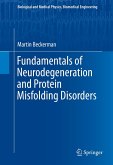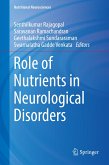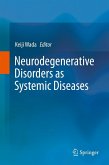It begins with a detailed introduction to the biogenesis and metabolic functions of peroxisomes, and highlights their role in oxidative stress and in lipid metabolism such as fatty acid oxidation. The following chapters focus on the molecular and clinical aspects of peroxisomal disorders caused by defects in peroxisomal function. In particular, the biological aspects of peroxisomal biogenesis disorders such as Zellweger syndrome and Heimler syndrome are discussed. This includes their underlying genetic causes as well as the biochemical and metabolic defects associated with the disorders. In addition, several chapters cover recent observations suggesting an association between peroxisomal dysfunction and neurodegenerative diseases such as Alzheimer's, Multiple Sclerosis and other degenerative cerebellar pathologies. The final section of the book discusses important cell and animal models for studying the role of peroxisomes in human diseases and presents current therapeutic strategies for their treatment.
This book deals with a highly topical subject that is at the heart of current research, and represents a valuable contribution for all students and researchers who want to understand the complex biology of peroxisomes and their role in human diseases.
Dieser Download kann aus rechtlichen Gründen nur mit Rechnungsadresse in A, B, BG, CY, CZ, D, DK, EW, E, FIN, F, GR, HR, H, IRL, I, LT, L, LR, M, NL, PL, P, R, S, SLO, SK ausgeliefert werden.









